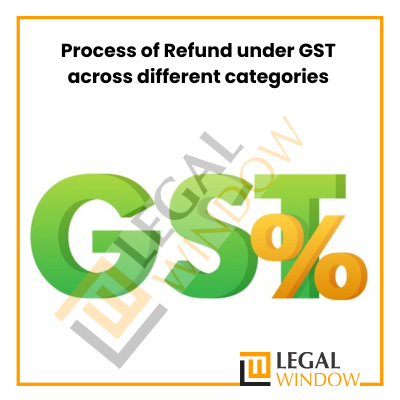Related Party Transaction under Section 188 of Companies Act, 2013
- August 1, 2020
- Company Law
The Companies Act, 2013 Act been developed with a view to enhance self regulation, improve corporate governance norms and raise the level of transparency with a significant objective to protect interest of shareholder or Investors. Therefore, Act brought landmark legislation which is known as Related Party Transaction to diminish its consequences. In the interest of good corporate governance, companies should maintain an arm’s length relationship in all transactions, including Related Party Transactions which are mostly seen as an area of conflict of interest and hence requires extra caution to avoid abuse of such transactions.
Concept of Related Party Transaction
In Corporate Business, a Related Party Transaction (RPT) is a transaction which takes place between two parties holding pre-existing connection or relation prior to the transaction. However, due to this, it will benefit each other ignoring the substantial interest of all the stakeholders.
Transactions with related parties need not always be disadvantageous. The concern arises only when there is abuse of a related party transaction on account of conflict of interest and non-arm’s length dealings which are beneficial to a related party but detrimental to other stake holders. Therefore, transparency in such transactions is essential in the interest of stakeholders and good corporate governance.
To develop the legal fabric in respect of RPTs, the necessary provisions are enshrined under the Companies Act, 2013
Pentagon:
Arm’s Length Transaction Section 188 of the Companies Act, 2013 defines the term ‘arm’s length transaction’ as a transaction between two related parties that is conducted as if they were unrelated, so that there is no conflict of interest
Who is Related Party as per Companies Act, 2013?
According to Section 2(76) of the Act, ‘related party’, with reference to a company, means
- A director or his relative,
- Key Managerial Personnel or his relative,
- A Firm in which companies director, manager, or relative is partner,
- A Private Company in which our companies director, manager, or relative is member or director in such private company,
- Any body corporate whose board of director, managing director, or manger is required act in accordance with the advice, directions or instructions of company’s director or manager,
But this condition will not be applicable, where directions are followed in professional capacity - Holding, Subsidiary or Associate of such company
- Any Company which is subsidiary of a holding company to which it is also a subsidiary
*Relative – with reference to any person, means any one who is related to another, if-
– they are members of Hindu Undivided Family;
-they are husband and wife; or
-one person is related to the other in such manner as may be prescribed;
Companies covered in Related Party Transaction
All type of companies are covered under the provisions of Related Party Transaction which includes:
- Public Company
- Private Company
- One person Company
- Section 8 Company, etc.
As per Companies Act, 2013 without obtaining the consent of board of directors given by a resolution at a meeting of board, no company shall enter into any contract or arrangement with a Related Party with respect to certain Related Party Transaction.
Other Consideration for Related Party to be taken care of:-
For the purpose of Section – 188, a Holding company, Subsidiary Company, Associate Company and Fellow Subsidiaries will not be related parties to a Private Limited Company. Thus, No board resolution or special resolution required for transaction between a Private Limited Company.
Legal Mechanism for Related Party Transactions
Related Transactions are not banned, they are regulated by section -188 of the Act, so that it can be disclosed to the board of directors or shareholders to ratify them. If the transactions are beyond the threshold limits, then it is required to be disclosed in General Meeting for approval by Special Resolution.
- The Act provides for approval of all transactions with related parties except with respect to transactions with a wholly owned subsidiary.
- Approval by the Board is necessary if the transaction with a related party is covered under Section 188(1) of the Act but does not exceed the thresholds under Rule 15(3) of the Companies (Meetings of the Board and its Powers) Rules, 2014.
However, approval of the shareholders is required in all cases where the transaction exceeds the thresholds referred to above. If the transaction is in the ordinary course of business and on arm’s length basis then approval of the Audit committee will be necessary (under section 177(4)(iv) of the Act) but approval of the Board is not necessary to be obtained. Further, he Act requires disclosure of related party transactions in the Directors’ Report.
Specified Contracts between a Company & Related Party which requires shareholder approval:-
| S. No. | Transactions | Threshold Limit |
| 1 | Sale, purchase or supply of any goods or materials | Amounting to 10% or more of Turnover of the company or Rs. 100 Crore, Whichever is Lower |
| 2 | Selling, buying property of any kind | Amounting to 10% or more of Net worth of the company or Rs. 100 Crore, Whichever is Lower |
| 3 | Leasing of property of any kind | Amounting to 10% or more of Net worth of the company or 10% or more of turnover of the Company or Rs. 100 Crore, Whichever is Lower |
| 4 | Availing or rendering of any services | Amounting to 10% or more of turnover of the company or Rs. 50 Crore, Whichever is Lower |
| 5 | Appointment of agent for purchase or sale of goods, materials, services or property | Amounting to 10% or more of turnover of the company or Rs. 100 Crore, Whichever is Lower |
| 6 | Appointment to any office or place of profit in the company, associate company, or subsidiary company | Exceeding Rs. 2,50,000/ – per month |
| 7 | Underwriting of securities or derivatives thereof, of the company | Exceeding 1% of Net Worth |
Role of Board of Directors
The Act casts onerous responsibility on the directors. The directors must take active steps to inform the Board about their interest in other entities. It is also expected that the directors also submit a list of relatives along with their PAN Number and other identifications to let management know whether any transaction is with a related party and to track such transactions.
Approval Requirements for Related Party Transactions as per Companies Act, 2013
- A prior approval of Audit Committee is to be obtained (Committee formed by Board)
- If the transaction falls in section – 188 then it is mandatorily to be disclosed in the Board Report of the company.
- If the transaction are done in fair and justifiable manner and is not biased by the relation of the parties and conducted as if it with an unrelated party. Then, such transactions are exempted from Compliance of Section – 188.
- Approval of the Board of Directors
- Approval of Shareholders
Disclosure of Interest by Directors
In terms of Section 184 of the Act, every director of a company is required to disclose his concern or interest in any company or companies or bodies corporate, firms, association of individuals and to all other companies in which he is a director. The duty to disclose applies also to an alternate director as well as to every other director appointed by any person or in any manner, including Nominee Director
Conclusions –
All the above Provisions, Regulations, or Circular are strictly to be followed to perform the business with related parties in this Corporate era as its significant interest lies in protecting the interest of Investors or other stakeholders of the Company.A company, in the course of conduct of its business, enters into various transactions with different parties, including its related parties. Companies also carry on their activities through subsidiary companies and associate companies.
For more information, contact Legal Window
LegalWindow.in is a professional technology driven platform of multidisciplined experts like CA/CS/Lawyers spanning with an aim to provide concrete solution to individuals, start-ups and other business organisation by maximising their growth at an affordable cost. Our team offers expertise solutions in various fields that include Corporate Laws, Direct Taxations, GST Matters, IP Registrations and other Legal Affairs.
Categories
- Agreement Drafting (23)
- Annual Compliance (11)
- Change in Business (36)
- Company Law (147)
- Compliance (88)
- Digital Banking (3)
- Drug License (3)
- FEMA (17)
- Finance Company (42)
- Foreign Taxation (6)
- FSSAI License/Registration (14)
- GST (116)
- Hallmark Registration (1)
- Income Tax (199)
- Latest News (34)
- Miscellaneous (164)
- NBFC Registration (8)
- NGO (14)
- SEBI Registration (6)
- Section 8 Company (7)
- Start and manage a business (20)
- Startup/ Registration (126)
- Trademark Registration/IPR (40)
Recent Posts
About us
LegalWindow.in is a professional technology driven platform of multidisciplined experts like CA/CS/Lawyers spanning with an aim to provide concrete solution to individuals, start-ups and other business organisation by maximising their growth at an affordable cost.







